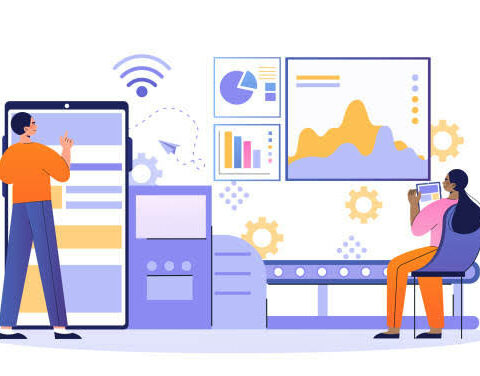In a bustling enterprise with more than 500 vendors and suppliers spread across the country, profits are flowing in and the business is thriving. The company has established a vast network of vendors, enabling it to source products and services from across the nation.
However, behind the scenes, the management team is struggling to keep up with the endless bottlenecks in the Accounts Payable (AP) process. The traditional method of managing the AP cycle is taking a significant toll on the company, with unpaid invoices and purchase orders piling up day after day. This has resulted in disgruntled vendors who have been left waiting for payments, leading to strained relationships with key suppliers.
Then there’re the employees in the accounts team who are overworked and under immense pressure, tasked with manually processing hundreds of thousands of invoices. As a result, there have been expensive accounting errors that have prolonged payment processing times and increased the number of outstanding invoices. The team is struggling to keep up with the increasing volume of invoices and purchase orders, leaving them with little time to focus on other critical tasks.
The traditional manual process of AP management is not only time-consuming and laborious, but it also requires a high level of accuracy and attention to detail, which can eventually take a toll on the human team. Unfortunately, mistakes are bound to happen, and when they do, the cost of rectifying them can be significant. These errors can range from double payments to incorrect billing to misplaced invoices and can impact the company’s financial statements, affecting their investors’ confidence.
This is not an isolated story but one that resonates with most enterprises and AP teams across the globe. The lack of automation to streamline enterprise processes has resulted in overburdened teams, excessive turn-around times, and costly errors.
Why is a Traditional APProcess Detrimental for Business Growth?
AP is an integral part of any business, and it involves a complex set of processes that require the cooperation of multiple departments. Unfortunately, the process is riddled with various pain points and bottlenecks, for instance:
Disorganized Invoice Processing and Approvals
There are numerous departments in many businesses, and each one has its own method for processing and approving invoices. This may result in a fragmented process where invoices are handled differently depending on the department. It’s easy for invoices to go missing, which can cause payment delays and disgruntled vendors. Along with that, administering various systems can be time-consuming, which reduces the efficiency of the accounts payable process.
Prone to Human Error
The manual and paper-based AP process is a significant pain point for businesses. Paper invoices must be physically processed, which can be time-consuming and prone to errors. It also requires multiple stakeholders to be involved in the process, which can lead to delays and miscommunication. Furthermore, paper-based invoices can be misplaced or lost, leading to missed payments and frustrated vendors.
Lack of Checkpoints to Minimize Fraud
The AP process involves several checkpoints, including invoice matching, approvals, and payment processing. However, without the right tools and processes, these checkpoints can be easily bypassed, leading to errors and fraud. For example, a fraudulent invoice may be approved and processed, leading to a significant financial loss for the business. Furthermore, errors in the AP process can lead to incorrect financial reporting, negatively impacting the business’s bottom line.
How AI Automation Streamlines the AP Cycle
Intelligent AI-based automation can be applied in the AP process to streamline the process and improve accuracy, efficiency, and speed. Here are some examples of how the implementation of AI solutions for process automation can help:
Data Entry
One of the most time-consuming and error-prone tasks in the AP process is manual data entry. Intelligent AI automation can help in automatically extracting data from invoices using capabilities like ICR (Intelligent Character Recognition). This can significantly reduce the time and effort required for data entry, minimize errors, and improve accuracy.
Validation
The automatic routing of invoices to the appropriate staff for evaluation and approval can be made possible using AI automation. This minimizes the possibility of errors or fraud and guarantees that invoices are processed promptly and accurately. Moreover, AI automation can assist in contacting vendors and effectively addressing billing issues.
Invoice Matching
Intelligent AI automation can assist in matching invoices with POs (Purchase Orders), receipts, or other pertinent documents in a 2-way, 3-way, or n-way manner. By doing so, conflicts between the invoice and the associated purchase order and receipts can be avoided.
Approvals
Invoices can be automatically routed for approval based on specified criteria and procedures by employing intelligent AI automation. This guarantees that bills are promptly and effectively examined and approved by the appropriate staff.
Invoice Mapping and Coding
Automating the process of adding GL (General Ledger) codes, cost centres, and other pertinent data to invoices can be helpful. Invoices can therefore be properly categorized and assigned to the appropriate accounts, departments, and projects.
Pushing to ERPs
AI-powered tools can assist in automating the ledger entry process by interacting with ERPs (Enterprise Resource Planning). As a result, minimal manual data entry will be required, and accuracy will be increased since invoices will be automatically issued to the correct accounts in the ERP system.
Benefits of AI-Led AP Automation
Now, with all this information, we can take a step back and imagine a different scenario where the same struggling enterprise with more than 500 vendors and suppliers adopts AI automation in their AP process. The picture changes entirely. With AI-based automation, employees can now walk into the office and brainstorm for business strategies, while AI handles most of the rote AP tasks. The business head/CFO can now focus on the business itself, instead of getting into escalations with vendors due to delayed payments and other issues.
The benefits of intelligent AI automation are significant. It can help organizations process invoices faster, reduce the risk of errors, and improve the accuracy of financial reporting. Furthermore, AI automation can help businesses build better relationships with their vendors. By streamlining the AP process and making payments on time, businesses can establish trust and credibility with their vendors, which can lead to more favourable terms and pricing.
The Future of AI Automation in Accounting
In conclusion, intelligent AI automation represents the future of accounting for enterprises. This technology combines machine learning, artificial intelligence, and cognitive process automation (CPA) to provide businesses with efficient and effective accounting solutions. Enterprises can streamline their accounting processes, reduce errors, and enhance data accuracy while also saving time and resources. Moreover, intelligent automation can be customized to suit specific business needs and can be scaled up or down as needed. With other processes like Accounts Receivable, invoice processing, etc. being automated – we are talking about a future where real-time Profit and Loss (P&L) statements can be processed, giving CFOs and business owners control and visibility like never before!
By embracing intelligent AI automation, enterprises can stay ahead of the curve and drive sustainable growth in the ever-changing business landscape. Therefore, businesses must invest in these AI solutions if they wish to leverage the benefits to improve their accounting operations and stay competitive in the market.








